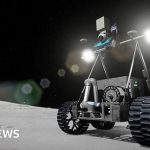
Artificial Intelligence (AI) and autonomous vehicles have long been the stuff of science fiction, capturing our imaginations with their futuristic capabilities. However, recent advancements in these fields have brought us closer than ever to turning these dreams into reality.
The Rise of Artificial Intelligence (AI)

AI is revolutionizing various industries, from healthcare to finance, by enabling machines to perform tasks that typically require human intelligence. Machine learning, a subset of AI, allows computers to learn from data and improve their performance without explicit programming.
AI in Healthcare

In the healthcare sector, AI has the potential to transform patient care and diagnosis. Machine learning algorithms can analyze large amounts of medical data, assisting doctors in making accurate diagnoses and suggesting personalized treatment plans. AI-powered robots can also perform complex surgeries with precision.
The Road to Autonomous Vehicles

Autonomous vehicles, also known as self-driving cars, are equipped with AI technology that enables them to navigate and operate without human intervention. These vehicles use a combination of sensors, cameras, and AI algorithms to perceive their surroundings and make decisions.
Enhancing Road Safety

One of the primary motivations behind autonomous vehicles is to improve road safety. AI-powered systems can react faster than humans, reducing the risk of accidents caused by human error. With the ability to communicate with other vehicles and infrastructure, autonomous vehicles can make real-time decisions to avoid collisions.
The Future of AI and Autonomous Vehicles

The future of AI and autonomous vehicles holds immense potential. As AI technology continues to evolve, we can expect more advanced and intelligent systems that can handle complex tasks. The integration of AI and autonomous vehicles can lead to efficient transportation systems, reduced traffic congestion, and increased accessibility.





